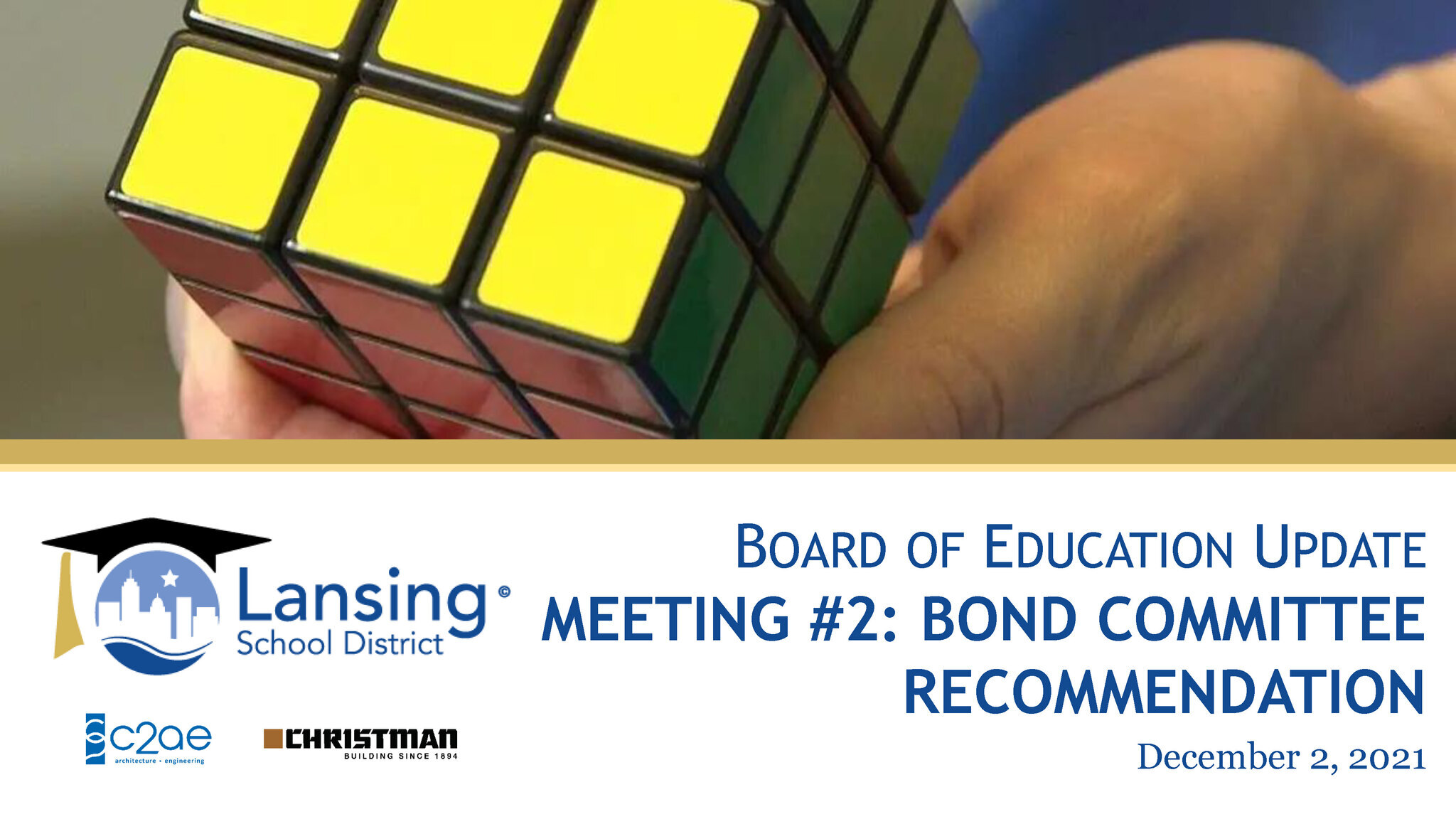Bond 2022
|
The Lansing School District would like to thank you all for your overwhelming support in passing this year's school bond! Over 71% of voters voted YES.This has been such a great community effort, with input from students, staff, parents, families, community partners, and local businesses. We couldn't have done it without you all. We look forward to building Lansing's future with four new schools, air conditioning in all classrooms, and a refresh for J.W. Sexton. Stay tuned as we start the design process; we will need your input. Again thank you, Lansing community! |
Bond 2022 FAQ
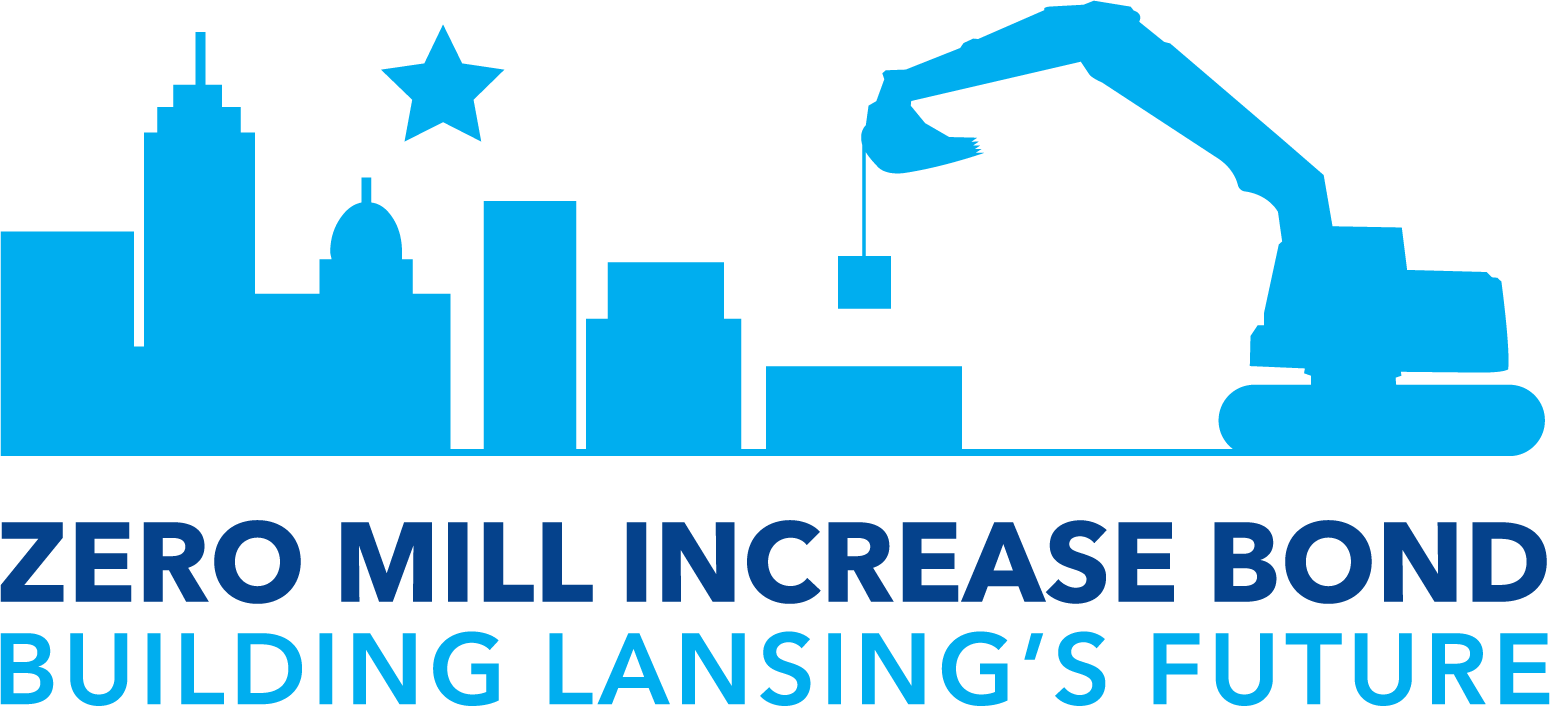 |
| The initiative would not increase the debt millage above the 2021 debt millage rate and generate $129.7 million to enable 21st century learning. With the 2016 bond work as our foundation, we would make the next round of investments in safe and modern schools to continue building Lansing’s future together. |
What a Bond Proposal is and How the Funds Can Be Spent
A bond proposal is how a public school district asks its community for authorization to borrow money to pay for capital expenditures. Voter-approved bond funds can be spent on new construction, additions, remodeling, site improvements, athletic facilities, playgrounds, buses, furnishings, equipment, and technology. Funds raised through the sale of bonds cannot be used on operational expenses such as school supplies, textbooks, busing, employee salaries or benefits. Bond funds must be kept separate from operating funds and must be audited by an independent auditing firm.
The Importance of Investing in Our School Facilities
What is the Lansing School District asking for on May 3?
On May 3, 2022, the Lansing School District is asking voters to consider a bond proposal that would generate $129.7 million for facility improvements throughout the district without an expected increase in the school district’s debt millage for Lansing property owners above 2021 levels. Primary Investments would include:
Four New School Buildings
The aging school buildings known as Lewton, Mt. Hope, Sheridan Rd., and Willow would be replaced with brand new, 21st century schools. In addition to being far more cost effective in terms of lifetime value of the building, these new schools would be purpose-built, age-appropriate spaces that align to community input regarding current and future needs.
Improvements to Air Quality and Comfort
Improvements would be made to HVAC systems and all classrooms across the district would receive air conditioning. Studies have shown that Indoor Air Quality is directly linked to health outcomes and student performance. The systems would also include higher-grade air filters to improve air quality to help respond to COVID-19 and potential future pandemics.
J.W. Sexton High School Refresh
Eastern and Everett High Schools both received significant upgrades with previous bonds, now it would be Sexton’s turn. Upgrades would include a complete renovation of the school’s auditorium, athletic improvements, new ceilings, window coverings, and a refresh throughout the school.
But didn’t we just approve funds for the district? Why do they already need more?
Yes, we did. In order to build out an educational vision, the Lansing School District asked voters to consider a bond proposal in 2016 and a sinking fund proposal in 2019. Since its passage, the 2016 bond proposal proceeds have funded building additions, new furniture, new technology items, a new Eastern High School and athletic complex and more. The sinking fund has allowed the district to tackle much-needed safety and energy efficiency improvements, such as replacing roofs, boilers and other weak infrastructure and adding security features to all schools.
Those investments were important, but there is still more to do. With the 2016 bond work as the foundation, the district would make the next round of investments in safe and modern schools to continue building Lansing’s future.
Why are Lansing’s schools important to building a stronger city?
Decades of economic research and data show the presence of high-quality schools increases local productivity, attracts new talent and business investment, and supports a stronger local quality of life.
For local property owners whose homes are located near a neighborhood school, school quality matters. Keeping schools safe and in good repair keeps home values stable and growing, as young families continue to be attracted to local K–12 programs. The Lansing community has redoubled its efforts to provide high-quality learning opportunities to Lansing students through the Lansing Pathway Promise.
Why would Sexton get so much this time?
Both Eastern and Everett High Schools received significant upgrades with the previous bond, now it would be Sexton’s turn. Upgrades would include a complete renovation of the auditorium, athletic improvements, new ceilings, window coverings, and a refresh throughout.
Do we really need air conditioning in the classrooms?
Studies have shown that Indoor Air Quality is directly linked to health outcomes and student performance. The systems would also include higher-grade air filters to improve air quality to help respond to COVID-19 and potential future pandemics. The investments would also improve energy efficiency for the long term.
Why rebuild Lewton, Mt. Hope, Sheridan Rd. and Willow Elementary Schools instead of just renovating them?
In addition to being far more cost effective in terms of lifetime value of the building, these new schools would be purpose-built, age-appropriate spaces that align to community input regarding current and future needs.
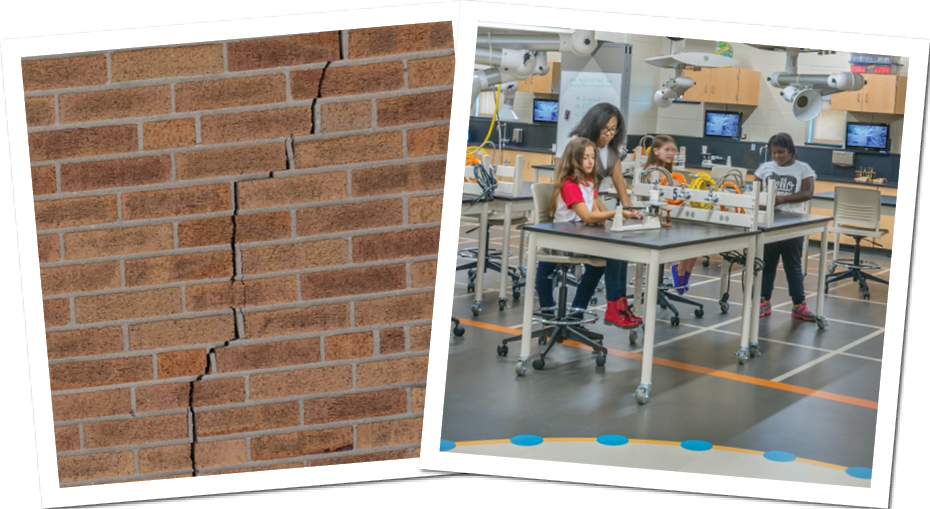
The left photo shows one of many facilities issues, the right shows what learning in Lansing could look like with this bond.
Would the new schools be built in different locations from the current schools?
The new school buildings would be built on the same property as the existing schools.
Building Lansing’s Future
How was this bond proposal developed?
This proposal was developed through an inclusive, collaborative and open process commissioned by the Board of Education. A committee of staff, students, community leaders, and other stakeholders met on a bi-weekly basis to develop recommendations to the board. The committee considered a detailed facilities study, professional consultant recommendations, enrollment projections, input from community forums, and a survey of citizens in developing their recommendation. The Board of Education voted unanimously to place the resulting proposal on the May 3, 2022 ballot.
How will the district oversee the use of these dollars?
If the Building Lansing’s Future bond proposal is approved by the voters, the money and projects will all be overseen by a special Bond Steering Committee. This committee would report to the Lansing Board of Education’s Facilities Committee (made up of three district board members), which would approve and relay all recommendations to the full nine-member board at their regular public meetings.
This process is currently being used for the Sinking Fund Millage and was used successfully for the 2016 Lansing Pathway Promise Bond projects (see examples of before and after photos below). It has proven to be effective, transparent, and fiscally responsible, while keeping projects on time.
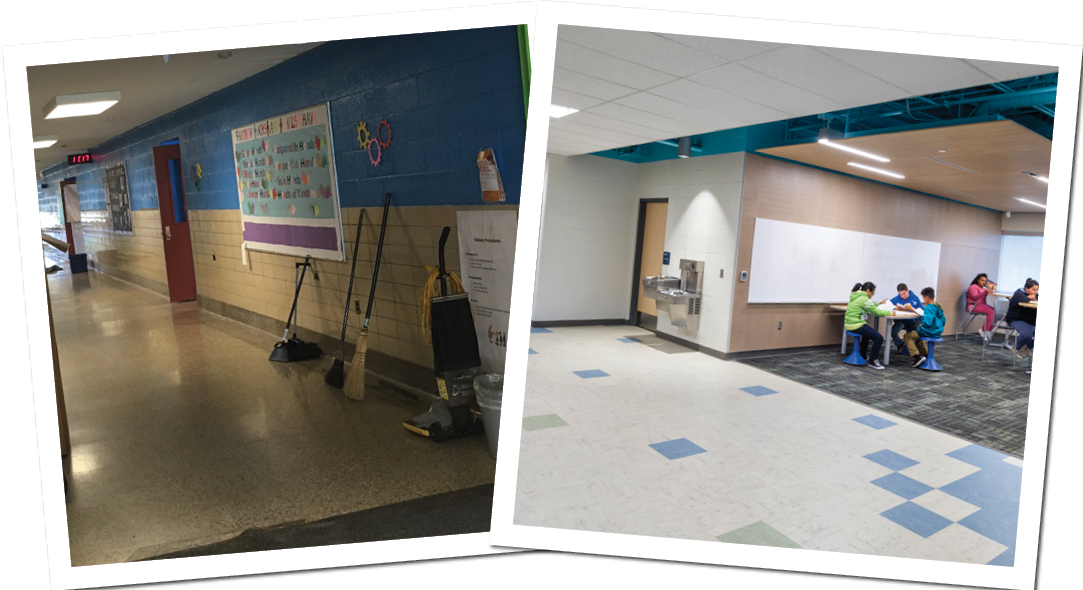
The left photo shows a dark dingy hallway at Pattengill, the right shows the renovated space post 2016 bond work.
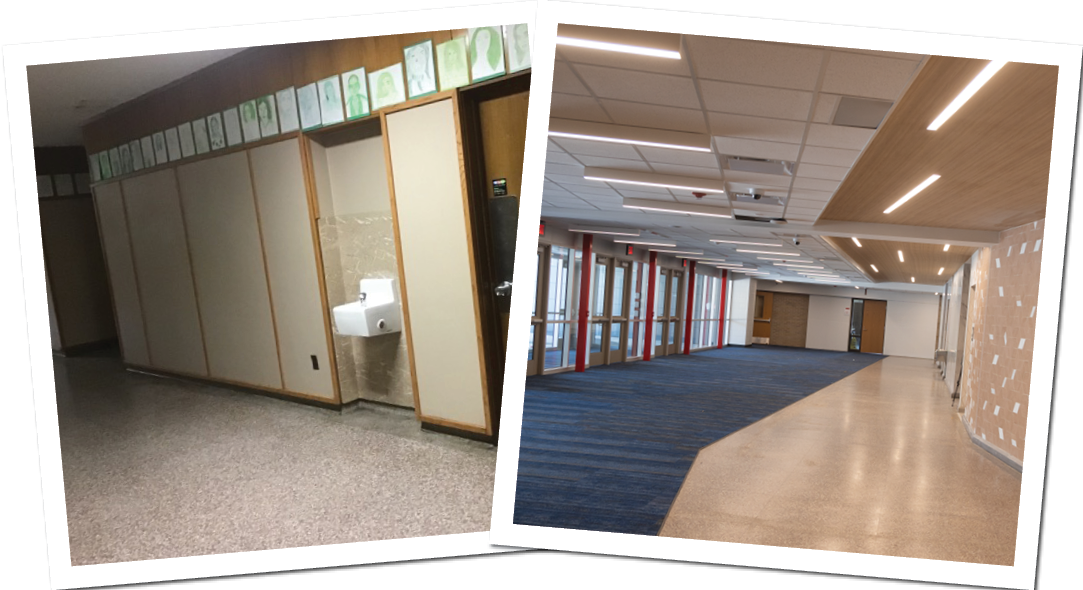
Before and after photos of the atrium at Everett. These are just a sample of the work, but the improvements are significant.
What has the district done in the last five years to reduce costs and balance its budget?
District staff have worked to bring the district’s expenditures in line with revenues over the past several years.
- We have balanced the district’s budget
- Independent audits consistently show the district’s financial picture to be solid and without exceptions.
- Our fund equity balance is kept at a level that is considered fiscally sound by state and federal experts and avoids operating debt
What happens if voters do not approve this bond?
If this bond is not approved, the district will have to reconsider its financial picture and determine next steps. It is possible that money currently spent on instruction would have to be diverted to facilities maintenance.
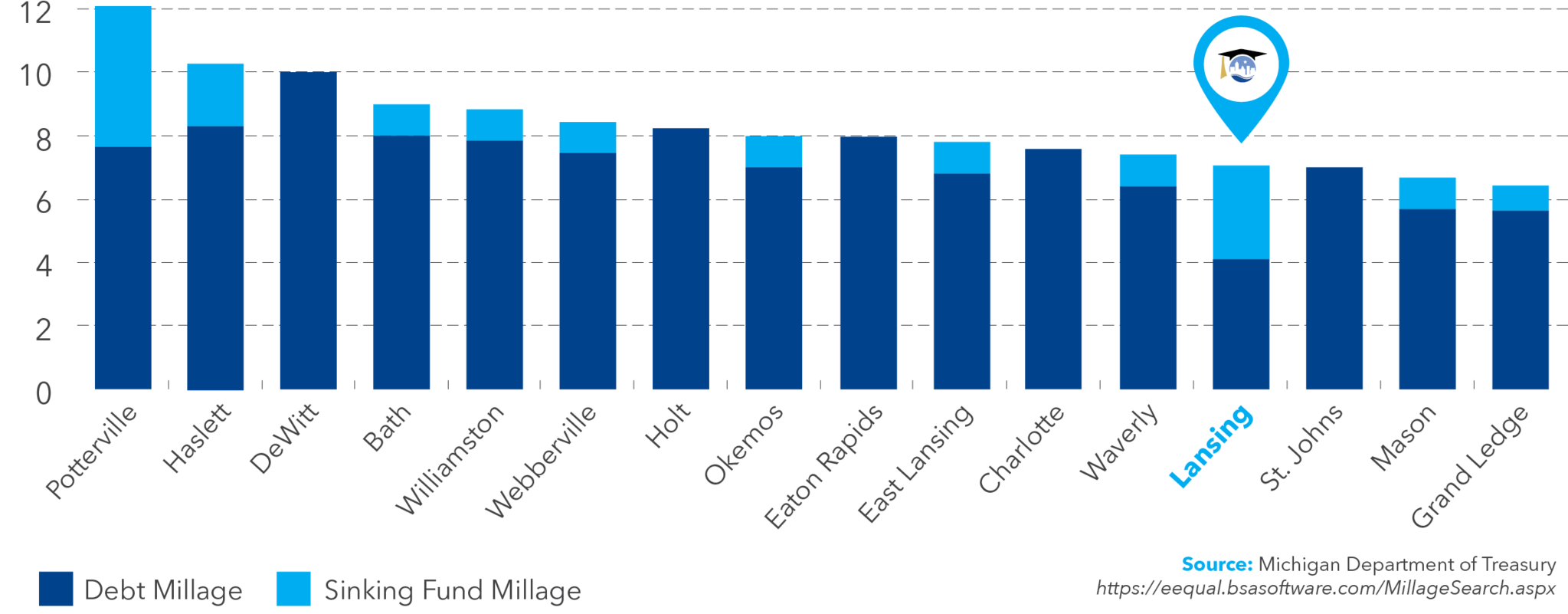
What is Lansing’s overall capital millage rate compared to surrounding districts?
Currently, the total capital improvement millage rate for the Lansing School District is 7 mills, the 4th lowest rate among neighboring districts. It is also worth noting that Lansing has the LOWEST DEBT millage! Refer to figure 1 above for more information about Lansing’s capital millage as it compares to neighboring districts.
What this Bond Issue Means to Voters
What is the proposed millage increase and how much would it generate for projects?
The proposal that will appear on the May 3, 2022, ballot for voter consideration is an expected zero mill increase compared to 2021 levels for a bond issue that would generate $129.7 million.
How will this impact my taxes?
If approved, the $129.7 million bond proposal would not be expected to increase the tax rate above your current (2021) tax rate.

How can a bond be passed without increasing the current tax rate?
At the end of this year, some of the district’s older debt will be paid in full. This allows us to extend the debt millage at the current level to support the payment on the proposed bond that would pay for critical needs of the district.
I am a Lansing voter, but I don’t have any connections to the school district. What does the bond proposal do for me?
All Lansing residents and business leaders have a vested interest in our school district. It is an essential part of our community’s economic success and quality of life. Families tend to choose where they will live and work based on the strength of the local school system.
Most important of all is the impact Lansing’s schools have on our overall economy. We produce much of the talent that keeps our employers thriving, and every operating budget dollar we divert from the classroom to pay for capital needs has a trickle effect in terms of what future Lansing graduates know and are able to do in their work.
My family and I rent our residence. Will we be able to vote in this election?
Yes. If you are a registered voter within the Lansing School District, which includes the City of Lansing, and certain parts of the City of East Lansing, DeWitt Township, Lansing Township, Delta Township, Windsor Township and Delhi Township, you are eligible to vote in this election, regardless of whether you own property.
How do I get more information about voting? Can I vote absentee?
Visit the Michigan Voter Information Center at Michigan.gov/vote to register to vote, or confirm your voter registration status. You can also request an absentee ballot online or download an application to mail to your clerk, view a sample ballot and find information on your local city or township clerk. Michigan allows all registered voters to vote absentee.
What are the key dates leading up to the May 3 Election Day?
| Registration | Voting Absentee* | Election Day |
| April 18, 2022 Last day to register online or by mail. |
April 29, 2022 • 5:00 p.m. Last day to submit online and mail requests for absentee ballots |
May 3, 2022 Polls are open from 7 a.m. - 8 p.m. |
| May 3, 2022 (Election Day) Last day to register in person. |
May 2, 2022 • 4:00 p.m. Last day to request an absentee ballot in person at your clerk’s office. |
Absentee* ballots must be returned by 8 p.m. on Election Day. |
* You can submit online, by mail, or hand deliver to your clerk’s office or their drop box. If you are returning your ballot within two weeks of Election Day, hand delivery is recommended to avoid any possible postal delays.
Official Ballot Language
The official ballot language can be found on the Ingham County Elections website.
![]() Official Ballot Language
Official Ballot Language
MAY 3, 2022 SPECIAL ELECTION
Ballot Proposals for Ingham County Voters
LANSING SCHOOL DISTRICT BONDING PROPOSAL
Shall Lansing School District, Ingham, Eaton and Clinton Counties, Michigan, borrow the sum of not to exceed One Hundred Twenty-Nine Million Seven Hundred Thousand Dollars ($129,700,000) and issue its general obligation unlimited tax bonds therefor, in one or more series, for the purpose of:
erecting, furnishing and equipping new school buildings; remodeling existing school buildings; acquiring and installing instructional technology and instructional technology equipment for new and existing school buildings; furnishing and refurnishing and equipping and re-equipping existing school buildings; and developing, equipping and improving playgrounds, play fields, athletic fields and facilities, parking areas, driveways and sites?
The following is for informational purposes only:
The estimated millage that will be levied for the proposed bonds in 2022 is 0.58 mill ($0.58 on each $1,000 of taxable valuation) for a -0- mill net increase over the prior year’s levy. The maximum number of years the bonds of any series may be outstanding, exclusive of any refunding, is twenty-five (25) years. The estimated simple average annual millage anticipated to be required to retire this bond debt is 1.88 mills ($1.88 on each $1,000 of taxable valuation).
The school district does not expect to borrow from the State to pay debt service on the bonds. The total amount of qualified bonds currently outstanding is $90,510,000. The total amount of qualified loans currently outstanding is $0. The estimated computed millage rate may change based on changes in certain circumstances.
(Pursuant to State law, expenditure of bond proceeds must be audited and the proceeds cannot be used for repair or maintenance costs, teacher, administrator or employee salaries, or other operating expenses.)
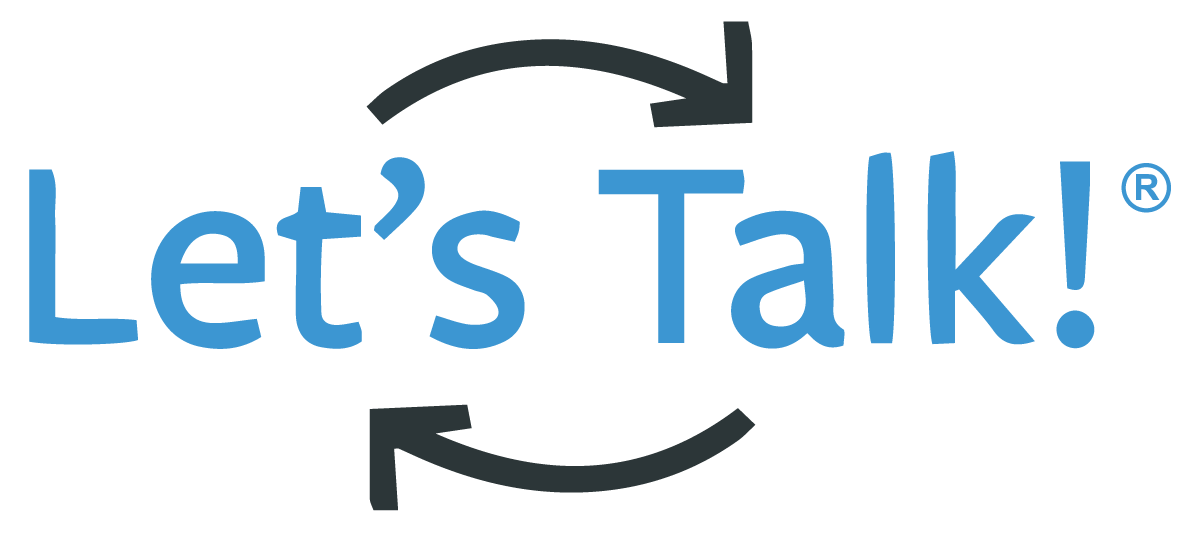 Do you have a question about the 2022 Bond? Let us know on our online form.
Do you have a question about the 2022 Bond? Let us know on our online form.



